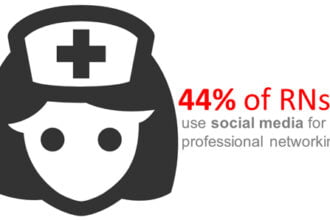I must admit that I’ve been feeling a bit depressed about the human condition. A passenger jet gets blasted out of the sky (mistake or not) by hostile forces. There are rising tensions in the Ukraine and a ground war is now underway in Gaza. So many lives are lost to violence around the world, and likely so many more that we never even hear about. Besides all that, there’s another war going on and right now we are losing. It is responsible for lost lives and human carnage measured in the thousands every day. It too is a conflict we don’t hear much about.
I must admit that I’ve been feeling a bit depressed about the human condition. A passenger jet gets blasted out of the sky (mistake or not) by hostile forces. There are rising tensions in the Ukraine and a ground war is now underway in Gaza. So many lives are lost to violence around the world, and likely so many more that we never even hear about. Besides all that, there’s another war going on and right now we are losing. It is responsible for lost lives and human carnage measured in the thousands every day. It too is a conflict we don’t hear much about. It is insidious and something that puts every one of us at risk every time we or a loved one enters a hospital or clinic. I’m talking about medical mistakes.
 According to information shared at a recent Senate hearing, preventable medical errors are the number three killer in America. Only cancer and heart disease take more lives. It is estimated that medical mistakes kill 1000 Americans every day and harm another 10,000 people a day due to complications resulting from non-fatal medical errors. How can that be, you say? Didn’t we play this tape back in 1999 when the Institute of Medicine published its now famous To Err is Human report? Back then, people were shocked to learn that perhaps100,000 lives were being lost annually due to medical errors in the American health system. Now, some 15 years later we are told that the number of deaths is perhaps four times that amount! What about the hundreds of billions of dollars that have been invested in electronic medical records and hospital information systems? Wasn’t information technology supposed to improve patient safety?
According to information shared at a recent Senate hearing, preventable medical errors are the number three killer in America. Only cancer and heart disease take more lives. It is estimated that medical mistakes kill 1000 Americans every day and harm another 10,000 people a day due to complications resulting from non-fatal medical errors. How can that be, you say? Didn’t we play this tape back in 1999 when the Institute of Medicine published its now famous To Err is Human report? Back then, people were shocked to learn that perhaps100,000 lives were being lost annually due to medical errors in the American health system. Now, some 15 years later we are told that the number of deaths is perhaps four times that amount! What about the hundreds of billions of dollars that have been invested in electronic medical records and hospital information systems? Wasn’t information technology supposed to improve patient safety?
Well, as many have pointed out, despite the vast sums expended on electronic records, we really shouldn’t be too surprised that medical mistakes still happen. The EMR is really little more than the digitization of our old paper record systems. And while some attempt has been made to reduce medical errors with e-prescribing, computerized physician order entry, clinical care guidelines, check lists, adverse alerts, and the like; it seems to err is still human. Did we really think our baby steps to digitize the paper record in electronic systems would by itself significantly reduce the proliferation of medical errors?
No question there is lots of room for improvement in electronic medical record solutions and hospital information systems. Most of what we are using in our hospitals today are refinements of computer software and systems developed in the 70’s and 80’s. There’s still not a whole lot of smart in healthcare IT, at least not yet. Even worse, if clinical end users are becoming too reliant on IT to catch and correct errors before they happen, or if we have so overwhelmed clinicians with data entry and data output that they can’t see the forest for the trees, then perhaps we can expect even more medical mistakes in the future than we are seeing today.
 The airline industry has been grappling with some of these very same issues. Unlike hospital IT, some would say that the information technology in airplanes has become too smart. Airplanes are fully capable of flying themselves with very little intervention from the pilots. This is causing concern in the industry that pilots are literally losing their flying skills, that they are becoming too reliant on technology—a concern perhaps validated by the crash of Asiana flight 214 during its botched landing in San Francisco.
The airline industry has been grappling with some of these very same issues. Unlike hospital IT, some would say that the information technology in airplanes has become too smart. Airplanes are fully capable of flying themselves with very little intervention from the pilots. This is causing concern in the industry that pilots are literally losing their flying skills, that they are becoming too reliant on technology—a concern perhaps validated by the crash of Asiana flight 214 during its botched landing in San Francisco.
What is drawn to our attention here is the delicate balance we must maintain between human and machine control. The machine is most certainly capable these days of holding and processing more information than the human brain can handle. On the other hand, if the machine only confuses the human brain or the human becomes too complacent in trusting the machine to always perform with perfection, then errors will still happen, in abundance, in our hospitals and clinics.
To err isn’t limited to humans. Sometimes, machines err too. Sometime both humans and machines together are to blame. But ultimately, at least for the time being, it is only the human that can improve the machines and make them less likely to contribute to the mistakes made by humans. If you are a developer, engineer, computer scientist, or concerned clinical end user, please rise up to that challenge!






